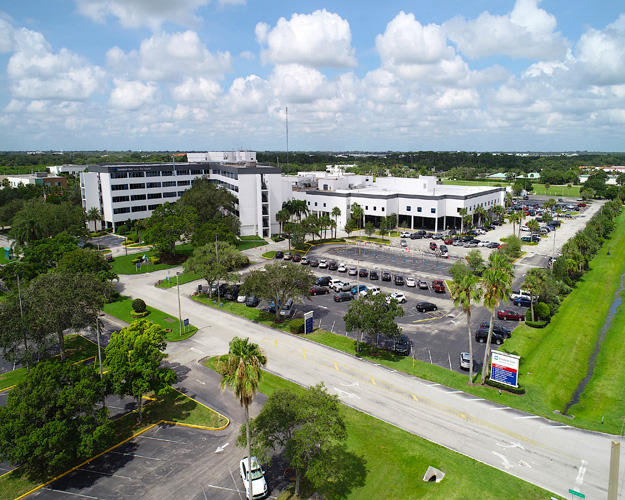
The number of new COVID-19 infections in Indian River County were down by 34 percent this week from the previous seven days, and the number of new hospitalizations of COVID-positive patients was lower by half.
Indian River County cases declined slightly more last week than in the state of Florida as a whole, where newly reported infections dropped 31 percent from 288,793 to 198,719 cases, according to the Florida Department of Health.
As the first batches of free COVID-19 test kits begin to arrive in mailboxes from the federal government, and health insurance companies began reimbursing members for multiple test kits per month, it’s important to note that the number of people who tested positive via rapid antigen tests at home and didn’t report their positive results to the County Health Department is a big unknown.
In the seven days leading up to Monday press time, 31 people were hospitalized with COVID-19, compared to 62 people the previous week, and the total number of COVID-positive people in the hospital declined markedly.
On Monday, Cleveland Clinic Indian River reported having a total of 36 COVID-positive patients, 28 on regular nursing floors and eight in the Intensive Care Unit. That’s down 37 percent from last week’s in-house count of 57 COVID-positive patients.
“We are seeing a declining trend in the number of COVID-positive patients requiring hospitalization, and we are operating with normal volumes,” said Dr. Gregory Rosencrance, President of Cleveland Clinic Indian River Hospital. “We are hopeful that this trend will continue in the weeks and months ahead.”
The only statistic that went up this week was the number of COVID-positive patients in the ICU, which jumped from three to eight.
For those at risk of becoming seriously ill and ending up in the hospital, Regeneron and similar monoclonal antibody treatments had been available for months at no cost at state-funded centers throughout Florida.
But last week, the U.S. Food and Drug Administration revoked the Emergency Use Authorization of these treatments that had been issued on Nov. 21, 2020, saying that the agency believes Regeneron and similar drugs, given by injection or intravenously, are not effective against the Omicron variant of COVID-19.
Gov. Ron DeSantis has harshly criticized this decision as not being based upon solid, peer-reviewed science. More than 2,000 COVID-positive people scheduled to receive monoclonal antibodies at regional centers like the one at the St. Lucie County Fairgrounds in Fort Pierce had their appointment abruptly canceled when the EUA was pulled.
The treatments would cost between $900 and $2,100 per patient if not covered by the government and distributed free of charge, but DeSantis says the wide availability of monoclonal antibodies has helped many Floridians avoid costly hospitalizations and even death.
“This decision was made without clinical data and without any advance warning to states and medical providers, leaving sick Floridians scrambling to find an alternative treatment,” said DeSantis.
He said the statistics show that the majority of the people getting monoclonal antibody treatments are those vaccinated against COVID-19.
“Our view in Florida is that we want doctors to be able to administer this treatment and patients to be able to access it, and they can make their own decisions from there,” DeSantis said at a Jan. 26 roundtable meeting with physicians and patients who had benefitted from monoclonal antibodies.
As the Omicron-variant surge seems to be easing a bit, the number of Indian River County residents being vaccinated is also declining.
Only 150 people got shots last week, down 44 percent from the previous week. According to the Florida Department of Health’s Jan. 28 report, 75 percent of local residents age 5 and older have been vaccinated against COVID-19.



